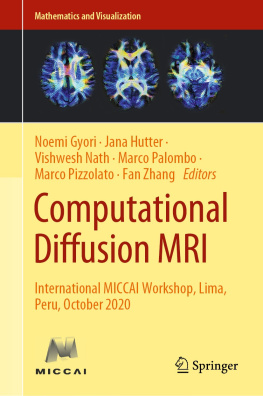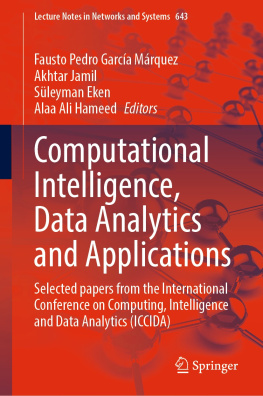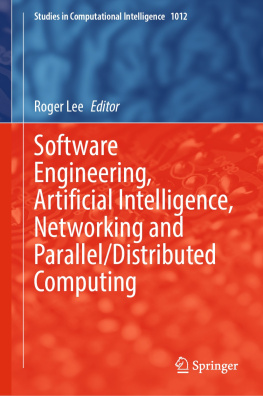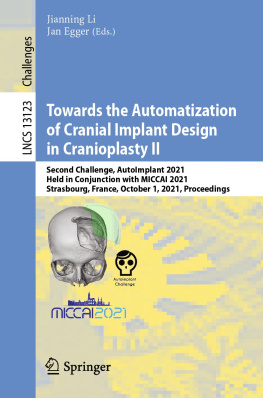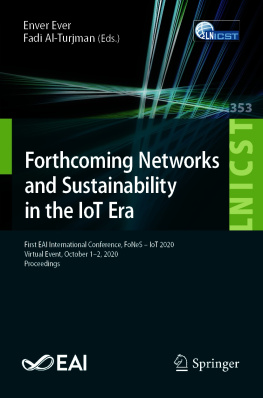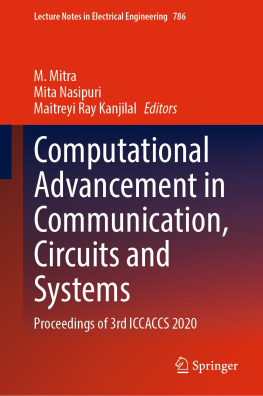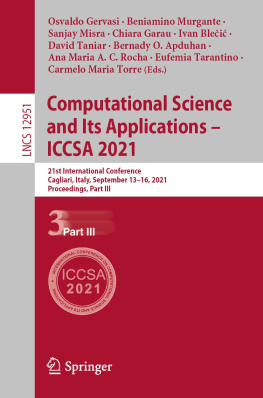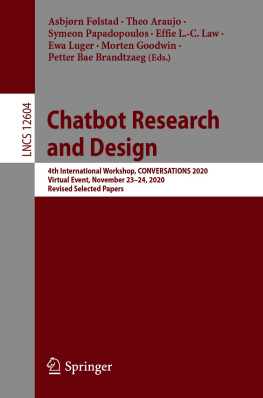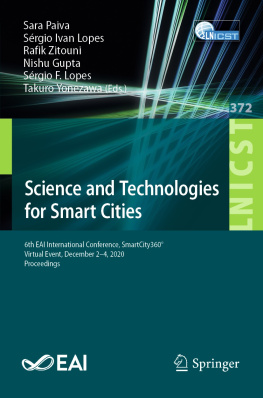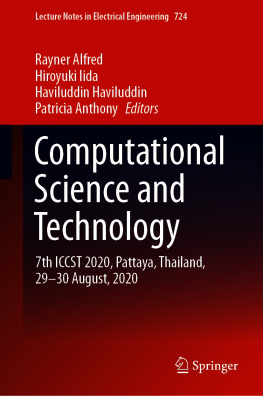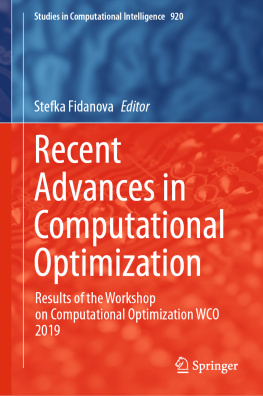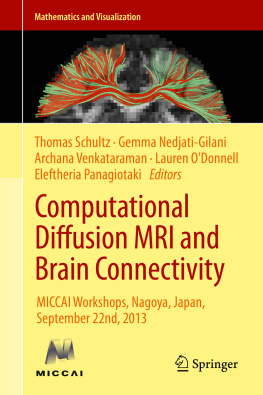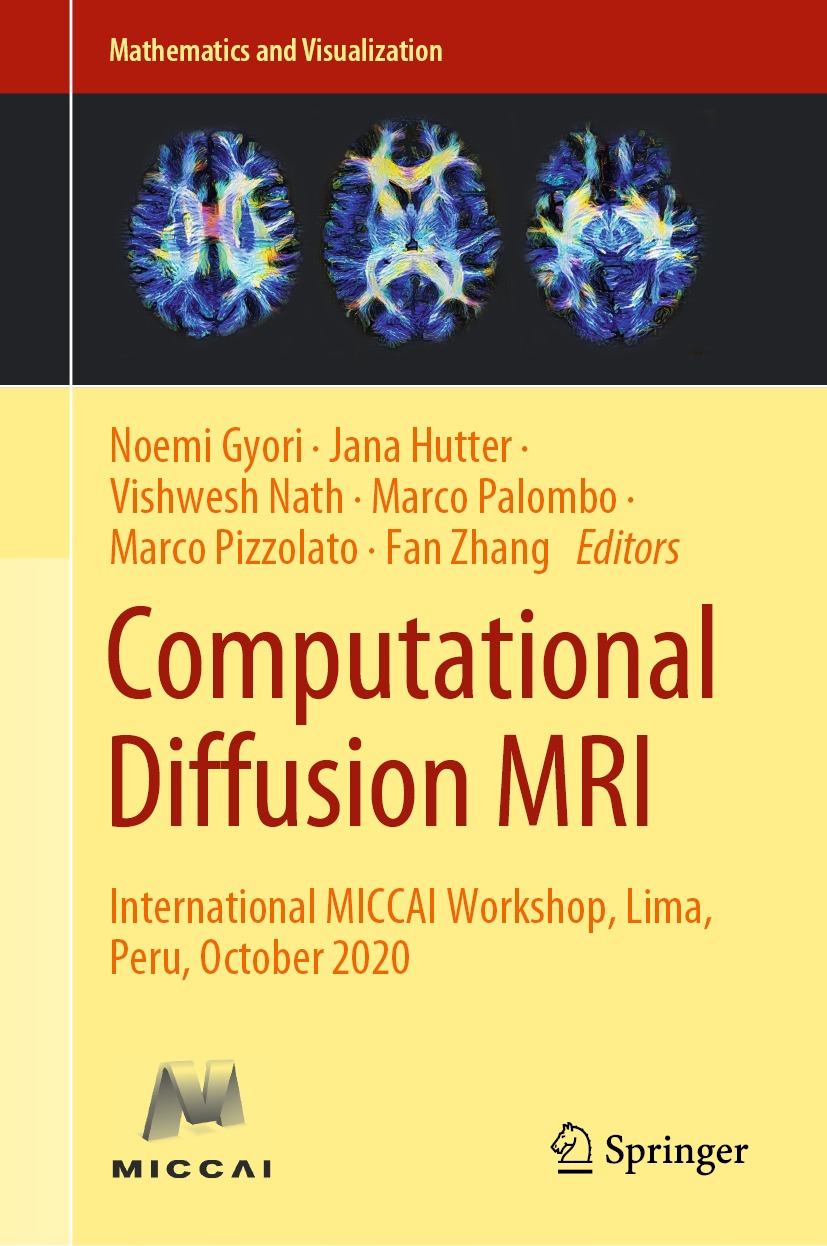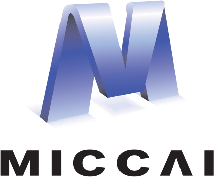Mathematics and Visualization
Series Editors
Hans-Christian Hege
Konrad-Zuse-Zentrum fr Informationstechnik Berlin (ZIB), Berlin, Germany
David Hoffman
Department of Mathematics, Stanford University, Stanford, CA, USA
Christopher R. Johnson
Scientific Computing and Imaging Institute, Salt Lake City, UT, USA
Konrad Polthier
AG Mathematical Geometry Processing, Freie Universitt Berlin, Berlin, Germany
The series Mathematics and Visualization is intended to further the fruitful relationship between mathematics and visualization. It covers applications of visualization techniques in mathematics, as well as mathematical theory and methods that are used for visualization. In particular, it emphasizes visualization in geometry, topology, and dynamical systems; geometric algorithms; visualization algorithms; visualization environments; computer aided geometric design; computational geometry; image processing; information visualization; and scientific visualization. Three types of books will appear in the series: research monographs, graduate textbooks, and conference proceedings.
More information about this series at http://www.springer.com/series/4562
Editors
Noemi Gyori
University College London, London, UK
Jana Hutter
Centre for Medical Engineering, King's College London, London, UK
Vishwesh Nath
Nvidia, Nashville, TN, USA
Marco Palombo
University College London, London, UK
Marco Pizzolato
Department of Applied Mathematics and Computer Science, Technical University of Denmark, Kgs. Lyngby, Denmark
Fan Zhang
Laboratory of Mathematics in Imaging, Harvard Medical School, Boston, MA, USA
ISSN 1612-3786 e-ISSN 2197-666X
Mathematics and Visualization
ISBN 978-3-030-73017-8 e-ISBN 978-3-030-73018-5
https://doi.org/10.1007/978-3-030-73018-5
Mathematics Subject Classication (2010): 00B25 00A66 00A72 42B35 60J60 60J65 62P10 65CXX 65DXX 65Z05 68R10 68T99 92BXX
The Editor(s) (if applicable) and The Author(s), under exclusive license to Springer Nature Switzerland AG 2021
This work is subject to copyright. All rights are solely and exclusively licensed by the Publisher, whether the whole or part of the material is concerned, specifically the rights of translation, reprinting, reuse of illustrations, recitation, broadcasting, reproduction on microfilms or in any other physical way, and transmission or information storage and retrieval, electronic adaptation, computer software, or by similar or dissimilar methodology now known or hereafter developed.
The use of general descriptive names, registered names, trademarks, service marks, etc. in this publication does not imply, even in the absence of a specific statement, that such names are exempt from the relevant protective laws and regulations and therefore free for general use.
The publisher, the authors and the editors are safe to assume that the advice and information in this book are believed to be true and accurate at the date of publication. Neither the publisher nor the authors or the editors give a warranty, expressed or implied, with respect to the material contained herein or for any errors or omissions that may have been made. The publisher remains neutral with regard to jurisdictional claims in published maps and institutional affiliations.
This Springer imprint is published by the registered company Springer Nature Switzerland AG
The registered company address is: Gewerbestrasse 11, 6330 Cham, Switzerland
Preface
It is our great pleasure to present the proceedings of the 2020 International Workshop on Computational Diffusion MRI (CDMRI20). CDMRI20 was held under the auspices of the International Conference on Medical Image Computing and Computer Assisted Intervention (MICCAI), which took place virtually on October 8th 2020, having originally been planned to take place in Lima, Peru.
This volume presents the latest developments in the highly active and rapidly growing field of diffusion MRI. The reader will find numerous contributions covering a broad range of topics, from the mathematical foundations of the diffusion process and signal generation, to new computational and machine learning methods and estimation techniques. The contributions are focused toward the in vivo recovery of microstructural and connectivity features, as well as combined diffusion-relaxometry acquisitions techniques. This edition includes chapters from high-profile researchers with the specific focus on four topics that are gaining momentum or have received increasing interest within the diffusion MRI community: (i) diffusion MRI signal acquisition, (ii) orientation processing: tractography and visualization, (iii) microstructure modeling and representation, (iv) signal augmentation and super resolution, and (v) diffusion MRI applications.
This volume offers the opportunity to share new perspectives on the most recent research challenges for those currently working in the field, and a valuable starting point for anyone interested in learning computational techniques in diffusion MRI. The book includes rigorous mathematical derivations, a large number of rich, full-color visualizations, and clinically relevant results. As such, it will be of interest to researchers and practitioners in the fields of computer science, MRI physics, and applied mathematics.
Each contribution in this volume has been peer-reviewed by multiple members of the international Program Committee. We would like to express our gratitude to all CDMRI20 authors and reviewers for ensuring the quality of the presented work. We are grateful to the MICCAI 2020 chairs for providing a platform to present and discuss the work collected in this volume. We also would like to thank the editors of the Springer book series Mathematics and Visualization as well as Leonie Kunz and Martin Peters (Springer, Heidelberg) for their support to publish this collection as part of their series.
Finally, we express our sincere congratulations to the winners of the prizes that were awarded during CDMRI20, including:
Prize for the best CDMRI paper: Learning Anatomical Segmentations for Tractography from Diffusion MRI, Christian Ewert et al. German Center for Neurodegenerative Diseases (DZNE), Bonn, Germany
Prize for the best CDMRI oral presentation: Longitudinal Parcellation of the Infant Cortex Using Multi-Modal Connectome Harmonics, H. Partick Taylor et al. University of North Carolina at Chapel Hill, Chapel Hill, North Carolina, USA
Prize for the best CDMRI power-pitch presentation: Image Reconstruction from Accelerated Slice-Interleaved Diffusion Encoding Data, Tiantian Xu et al. University of North Carolina at Chapel Hill, Chapel Hill, North Carolina, USA

